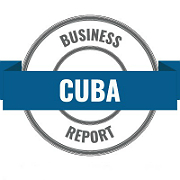The economic climate in Cuba is fast changing thanks to the efforts of almost half a million Cuban entrepreneurs or cuenta propistas, who are taking the initiative to enhance their own lives. Their perseverance, resolve and innovative ideas are immeasurably altering Cuban society.
Subtle policy shifts by the Cuban authorities permitted startup enterprises to operate. Until this week, the government had permitted private enterprise by self-employed workers in a couple of hundred categories such as a private restaurant owners or hairdressers. This week, the Cuban government announced that Cuba would legalize small and medium-sized private businesses.
These policies are slowly revitalizing the economy in Cuba by allowing people to take charge of their own economic destiny. Small, mid-sized and “micro” private business are being added to the Government plan for further social and economic development.
When small businesses are set up, it has an invigorating impact on the economy. It creates demand for additional services, goods and inputs across the supply chain. In turn, this creates the potential for many more jobs opening up in the private sector.
Certainly Cuban entrepreneurs have had to overcome many obstacles in the past. Aside from the complex tax laws, it is difficult to access rental space, import supplies and export products. Internet connectivity, vitally necessary in today’s business world, is both difficult to obtain and extremely expensive. The laws concerning entrepreneurial activity are sometimes not clearly understood either. It had been difficult to run a business when these new types of businesses have not been officially recognized. But this is all changing in the new Cuba. Three new types of businesses are now recognized as legal entities separate from their owners.
Funding new Cuban startups is not easy either. Cubans with relatives in the United States have been able to fund their startup businesses with help from families.
Sasha Ramos and Rafael Muñoz were unable to get bank loans to fund their restaurant, so they convinced Muñoz’s mother to swap her home for a derelict cooking oil factory. Also, they convinced Ramos’s father and mother in law to provide the start up capital. The partners purchased sinks, blenders, lighting fixtures and hand dryers from Panama and Miami. Artisans replicated Italian furniture from magazines with fiberglass, rebar and other surplus materials.
Nidialys Acosta and Julio Alvarez set up a garage that restored classic cars, however locating auto body paint, welding gas and scrap metal is so difficult that customers frequently provide their own materials and components. In 2014, Yovanni Cantillo set up Ya, which is the first drive through fast food outlet in Cuba. Since then, every month and a half, he travels abroad to bring back briefcases filled with milkshake straws, soda cups and small plastic ketchup cups which are difficult to find in the state run shops.
These people are classed by the government as self employed and are otherwise known as Cuba’s cuenta propistas. These people often create many jobs too. Ernesto Blanco began La Fontana Restaurant on his friend’s premises. These days, he hires twenty-nine staff and makes thousands of dollars monthly, paying ten percent in taxes to the government.
Cuba’s cuenta propistas are redefining their country in the modern world. They are the new “Cuban Tigers.” Will these entrepreneurs turn Cuba into a high growth economy like the Asian Tigers of the 1960s? The “Cuban Tigers” are pushing their country and lives forward and keen to form partnerships with other like-minded people.

From our staff writers and editors.












